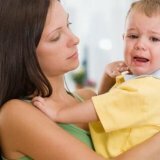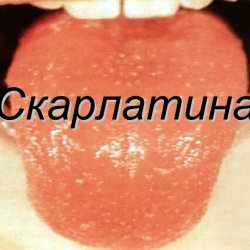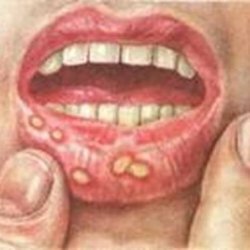The causes, methods of treating diarrhea

It is very important to determine the cause of diarrhea.
To begin with, it is necessary to determine the cause of diarrhea. This is a very important step in the appointment of etiotropic therapy - a treatment that eliminates the cause of the disease. Sometimes it is very difficult to find out the cause of the disease. Establishing the form of diarrhea( there is a watery and bloody stool) greatly simplifies the task of diagnosis and the appointment of the necessary treatment. If possible, it is better to clarify the diagnosis of fecal microscopy - thus, the presence of certain types of pathogenic bacteria in the stool is determined. Such a method of diagnosis, as crops on nutrient media, is used extremely rarely, and even then for the purposes of epidemiology. It is worth considering the main types, causes, methods of treating diarrhea.
Types of diarrhea and methods of treatment.
1. Watery diarrhea appears most often when the toxins of bacteria affect the small intestine, that is, with acute intestinal infections or food poisoning. But at the same time, there are very few pathogenic bacteria in the intestine. In winter, there can be diarrhea of the viral breed - watery. With such a disease, antibiotics and other antimicrobial drugs are not prescribed. But there is an exception - severe diarrhea with suspicion of salmonellosis or cholera. In this case, the patient is urgently hospitalized, treatment at home is completely excluded.
The most important thing in the treatment of watery diarrhea of mild and moderate severity is to prevent dehydration of the body and normalize the balance of water and salt. For this, it is necessary to use, for example, Regidron or Oralit. If such preparations are absent, the saline solution can be prepared at home. It is necessary to dissolve 1 teaspoon of salt, 1 tablespoon of sugar and a half teaspoon of baking soda in a liter of warm boiled water. After the thirst is satisfied( to do this, take 3-4 cups of solution in a short period of time), the solution should be taken half a cup after each trip to the toilet or within 12 hours 3-4 glasses until the complete cessation of diarrhea. In case of illness it is worth not to eat foods that are difficult to digest or are rich in fiber( raw vegetables, fruits), fruit juices, dairy products, salty and sweet foods, since such products will only complicate diarrhea. It is recommended to eat baked vegetables and fruits, biscuits, strong tea, especially from St. John's wort.
Adults with acute diarrhea are better to use the following medicines: Loperamide or No-shpa. Loperamide is used cautiously( no more than 8 mg per day!).In the case of an overdose, breathing and consciousness are disturbed - in large doses, this remedy inhibits the work of the central nervous system. If Loperamide does not help or if there is a fever, it is necessary to consult a doctor immediately. In children, the use of loperamide in the treatment of diarrhea is undesirable.
2. Bloody diarrhea .The most important thing in the treatment of bloody diarrhea is to eliminate the causes of the disease with the use of antibiotics and preparations of synthetic origin against microbes. It is worth mentioning that the presence of bloody diarrhea is already the need for hospitalization, so trying to cure this kind of diarrhea at home is completely undesirable. Therapy for replenishment of the body follows the scheme described above. With bloody diarrhea, such treatment is also very important, but it is given a secondary role after antimicrobial treatment. An infectious therapist treats the diarrhea of a known diagnosis, based on determining the sensitivity of the microbes to the types of antibiotics. However, in most cases it is impossible to pinpoint the causative agent of the disease. In such cases( and in the treatment of bloody diarrhea) at home( but not recommended), an empirical treatment with antimicrobial agents is prescribed. In connection with the development of the resistance of many microbes to "classical" antibiotics, bloody diarrhea is treated with preparations of the Fluoroquinolones group( Ciprofloxacin, Norfloxacin, Ofloxacin).Co-trimoxazole and metronidazole are sometimes used. It is worth remembering that before using any medicine, you should carefully read the instructions for use and consult a specialist.
Cases when it is urgent to see a doctor.
Despite the fact that mild or moderate diarrhea is treated often at home, it is necessary to know that there are cases when diarrhea is a sign of a serious illness that requires urgent hospitalization and professional medical help. In childhood and the elderly, diarrhea can be life threatening. Cases when it is necessary to consult a doctor:
- Acute diarrhea has occurred in a child up to a year or older person;
- Along with diarrhea, body temperature increased above 38 C;
- Cal is black in color( similar to tar) or vomiting of a dark brown color with blood splashes( possibly, signs of a stomach or duodenal ulcer);
- If abdominal pain or severe vomiting occurs with acute diarrhea;
- If acute diarrhea causes severe dehydration or disturbs the consciousness of the patient;
- Despite treatment, diarrhea lasts more than 3 days;
- If diarrhea occurs intermittently for no particular reason;
- The appearance of side effects as a result of drug treatment of diarrhea( allergic reaction - rashes, abdominal pain, nausea, irritability, insomnia, the appearance of yellow skin, dark urine, etc.).
At the appointment, the doctor should tell about all the current and transferred diseases, operations and treatment that was used at home.



